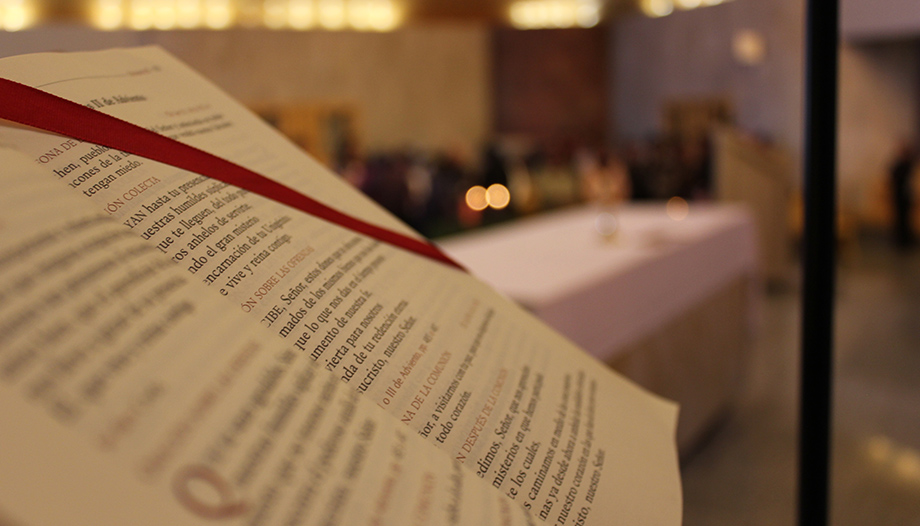In the Old Testament the vineyard was a recurring image to describe God's love and care for His people and Jerusalem. Israel was God's chosen vineyard, which he had created and shaped with special care. Today's readings give us an example of the use of this image. The psalm describes Israel as "the vine that your [God's] right hand planted".. And in a passage from Isaiah, we hear what is known as "the song of the vineyard".
The language is full of love and tenderness: the prophet's love for God (to whom he refers to as "my beloved") and God's love for his people, described through the metaphor of the vineyard: "My friend had a vineyard on a fertile hill. He dug it up, removed the stones and planted good vines; he built a tower in the middle and dug a winepress.". And then God himself says: "What more could I do for my vineyard that I hadn't done?". The psalm adds: "You brought forth a vine out of Egypt, drove out the Gentiles, and transplanted it.".
In other words, God could not have done more to establish Israel and help it flourish. But Israel never reciprocated such great love, and so God laments: "Why, when I expected him to give grapes, did he give agrazones?". The bad grapes of sin.
And both in the first reading and in the psalm, God announces the punishments derived from Israel's lack of correspondence: the demolition of its walls (those of Jerusalem), its abandonment and lack of care, the theft of its products, its devastation by animals and the lack of rain.
It is not surprising, therefore, that Jesus uses this image to warn Israel. He also describes the great care God took to establish Israel by the image of the building of the vineyard. It is as if he were saying, "Repent, or the punishments threatened to the vineyard will now fall upon you."
Jesus tells a parable in which a landowner repeatedly tries to obtain the produce to which he is fully entitled from the tenants to whom he has leased the vineyard, but, when he sends his servants to fetch it, they are mistreated.
Finally, the owner, who is God the Father, sends his Son, who is Jesus, but the husbandmen kill him. Jesus predicts his death to try to warn the Israelites that he knows what they are doing and what their actions will lead to.
Throughout today's reading we perceive the evil of obstinacy and resistance to grace. They lead only to disaster, first on earth, but ultimately in the afterlife. We see a God who, despite all his love, or rather because of it, is annoyed by what we do and angry at our sins.
Stubbornness in sin will lead us to perdition and God's patience has, in a certain sense, limits. He will not impose his grace on us and, if we reject it, he will offer it to others instead of us.
Homily on the readings of Sunday 27th Sunday in Ordinary Time (A)
The priest Luis Herrera Campo offers its nanomiliaA short one-minute reflection for these Sunday readings.












